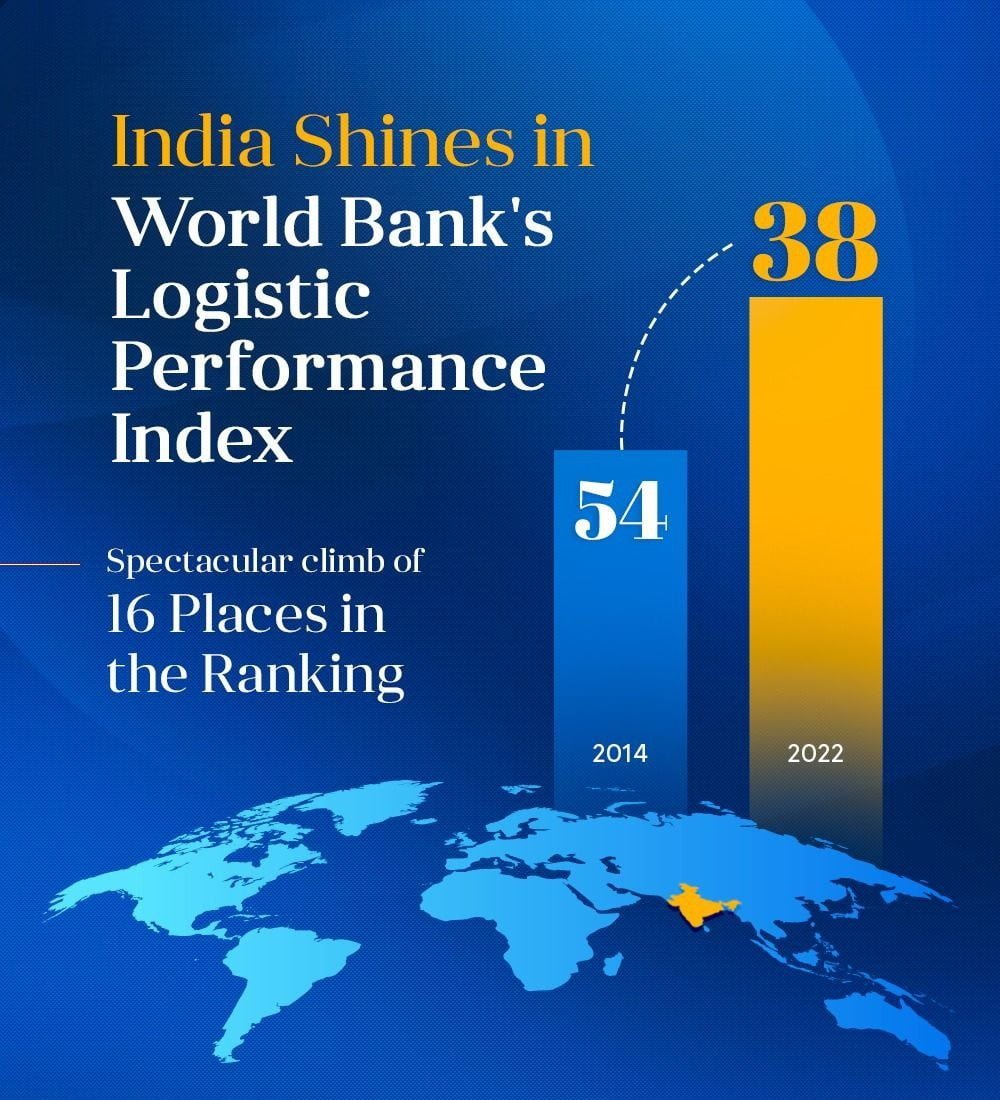India has climbed six places to reach the 38th spot in the Logistics Performance Index (LPI) 2023, a 139-country ranking of logistics efficiency and quality. This improvement is credited to India’s efforts to ensure quick last-mile delivery, address transport-related challenges and improve speed in the logistics sector.
India had ranked 44th on the index in 2018 and 54th in 2014. In 2022, India’s Prime Minister launched the National Logistics Policy (NLP) aimed at improving last-mile delivery, saving time and money for the manufacturing sector and ensuring desired speed in logistics.
As a result, India climbed five spots in infrastructure score to 47th, 22 spots in international shipments to 22nd, and four spots in logistics competence and equality to 48th. Technology has been a critical factor in this improvement, with implementing a supply chain visibility platform under a public-private partnership by NICDC Logistics Data Services using radio frequency identification tags on containers to enable consignees to track their supply chain. This contributed to significant reductions in delays, with the average dwell time for containers in India and Singapore being three days, compared to seven days in the US and ten days in Germany.
India’s low dwell time of 2.6 days is an example of the success of implementing tracking and tracing solutions. For instance, in the eastern port of Visakhapatnam, the dwell time fell from 32.4 days in 2015 to 5.3 days in 2019 following the introduction of cargo tracking.
Dwell time refers to the amount of time a vessel or cargo spends at a port or terminal before being loaded onto a vessel or after being unloaded. Delays in any particular port can affect the entire shipping container vessel service. Implementing tracking and tracing solutions has helped emerging economies improve logistics efficiency, and India’s success in reducing dwell time demonstrates this.



